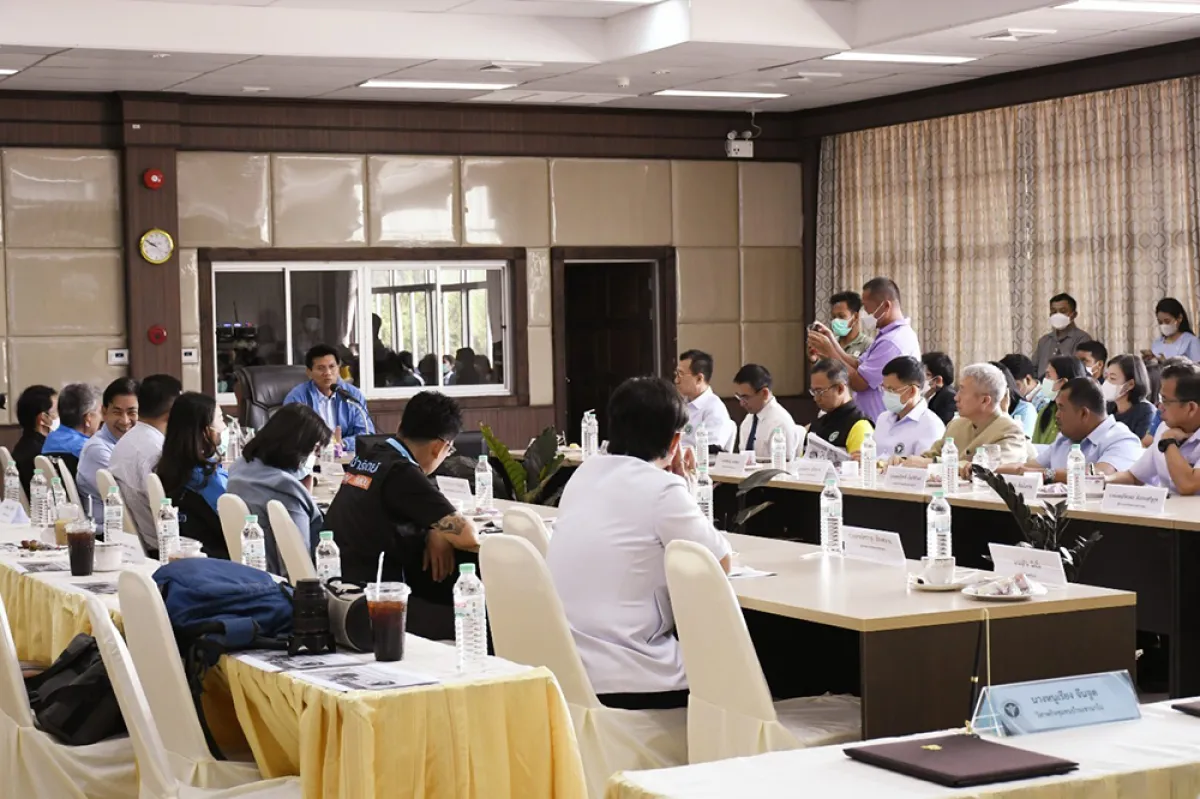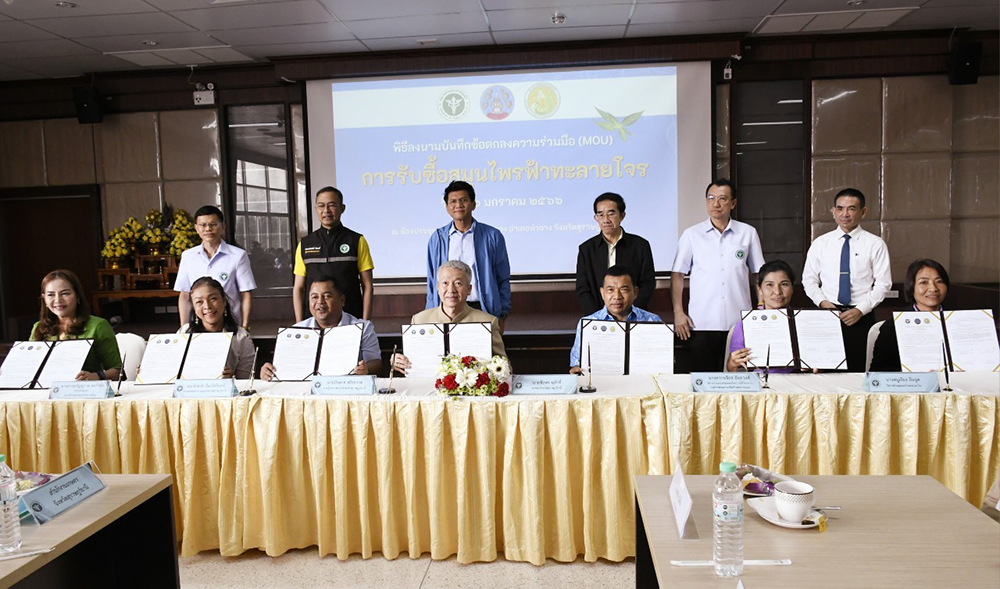
Nowadays, more and more people are concerned about their health, which has resulted in the continuous expansion of health-related products and services, as well as medical tourism, which targets those who are concerned about their health but are not necessarily patients. Some visitors prefer to learn what kinds of healthy foods they should eat. Some people want to unwind or care for their health with local wisdom, such as soaking in hot springs, Thai massage, Thai traditional medicine (including the use of herbs, compress balls, or spas).
Thai herbs are part of the country’s unique cultural heritage; it is a soft power that has been transmitted from generation to generation, a body of knowledge that has been handed down since ancient times with a variety of purposes, including cooking, medicine, maintaining health, and beauty.
The “Herb City” project is thus one way to promote the development of Thai herbs that can drive the economy by selecting provinces that are ready in terms of geopolitics, identity, way of life, appropriate local culture, and strengths in terms of promoting planting to be the source of the country’s medicinal raw material production. There are services with Thai traditional and alternative medicine, as well as being a source of herbal products and a health tourist destination.
Surat Thani Province is one of the provinces that has a plan to develop a herbal city (Herbal City) to support health tourism by setting the vision “Surat Thani Herb City, Progressive Thai Traditional Medicine, Sustainable Health Tourism.” There is a plan to integrate herbal products into health tourism, promoting the use of herbs from the beginning to the middle and the end with the cooperation of farmers, the public sector, and the private sector; it has grown continuously in both production and development of herbal raw materials, processing herbs into various products, using herbs as an alternative to chemical health care, and, most importantly, developing researchers who are able to further develop personnel in the herbal plot.
Surat Thani Province already has three outstanding “product champions”: turmeric, oyster mushrooms, and cold-pressed coconut oil.
Selling turmeric will encourage more planting, as well as encourage community enterprises or SMEs to develop more commercial products to increase economic value by focusing on the development of several products, such as Centella asiatica extract serum mixed with turmeric extract, facial serum, cockle mushroom extract, and cream salad dressing from cold-pressed coconut oil, as well as other unique local herbs.

In addition, three health tourism routes have been developed:
Tha Chang herbal pharmaceutical factory plans to produce 42 items in 2023, including lozenges, infusions, capsules (recipes), powder pills, and single capsules (adding turmeric capsules and Andrographis paniculata capsules).
As for the Tamarind Herb Processing Plant, the production of dried herbal medicines, dried herbal medicines (recipes), and external medicines has increased to 129 items by adding eucalyptus spray. The Tha Chang herbal medicine factory intends to produce three Lung Dam Koh Tao cannabis oil formulas in March 2023: Lung Dam Koh Tao cannabis oil formula 1, in the form of oil drops to relieve cancer pain; formula 2, insomnia capsules and topical formulations, spray form for skin disease symptoms.
The processing of all herbs contributes to the development of a career in growing and selling herbal raw materials in the area, particularly turmeric and paniculata. Surat Thani Province is thought to be a source of higher quality herbs than other regions, making them worth 2-3 times more.
Source : Office of Information, Ministry of Public Health, Building 3, Office of the Permanent Secretary, Ministry of Public Health, Tiwanon Road, Talad Khwan Subdistrict, Mueang Nonthaburi District, Nonthaburi Province.
Tel: +66 2590 1000
Release date 20 January 2023